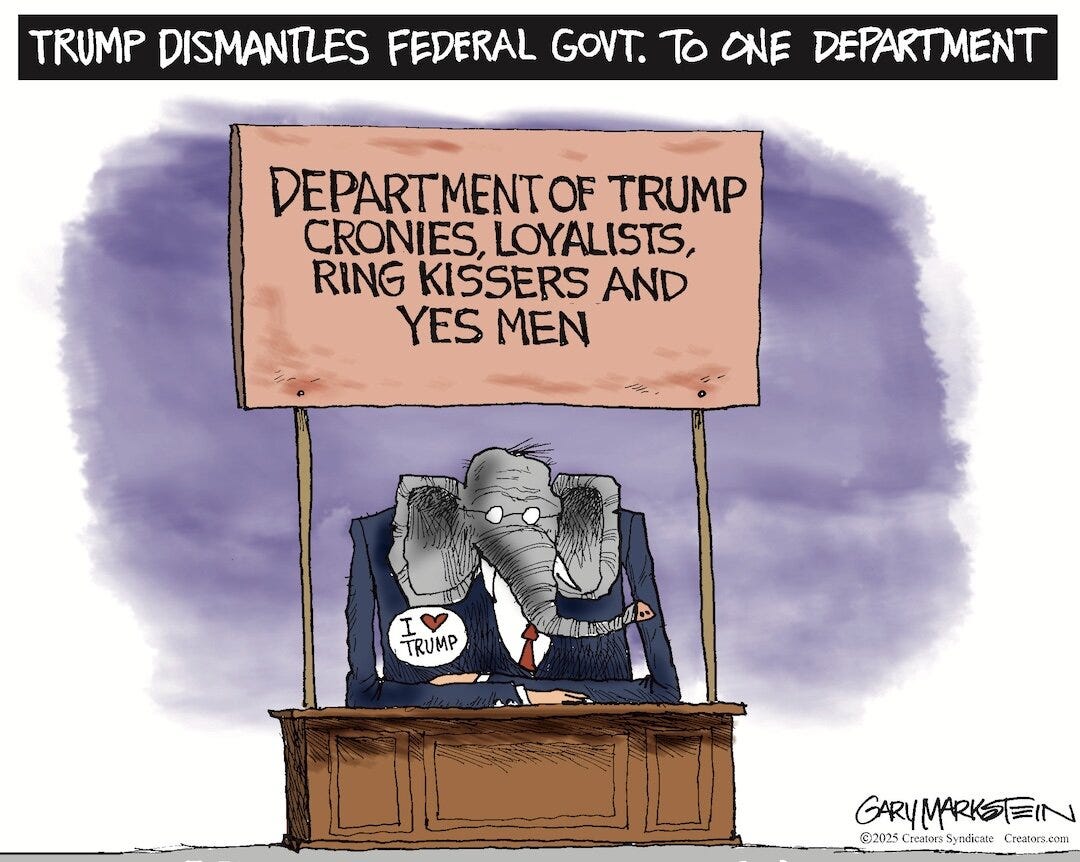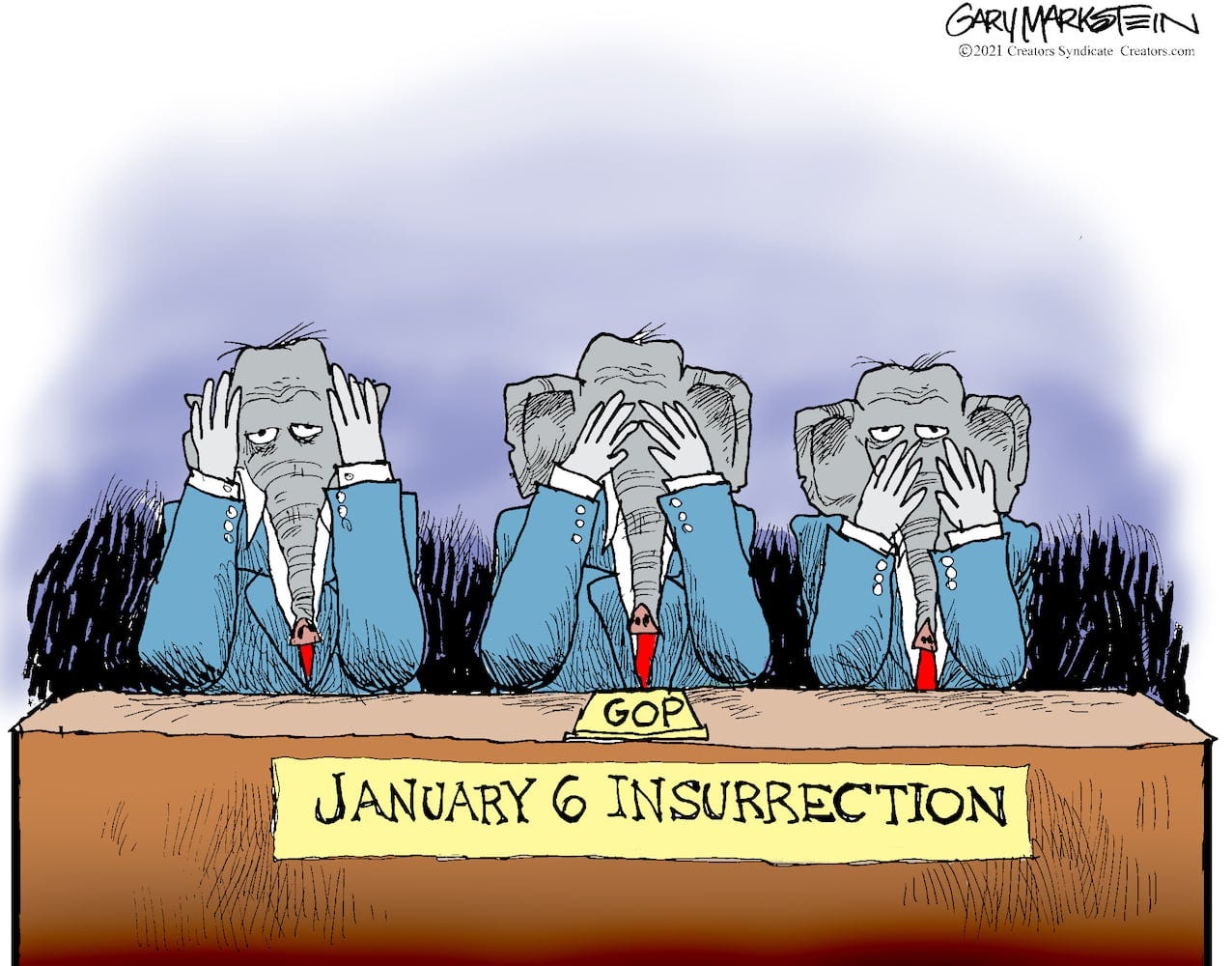I don’t know if you read that Alan K. Simpson, a Folksy Republican Force in the Senate died last week.
Alan K. Simpson, a plain-spoken former Republican senator from Wyoming who championed immigration reforms and conservative candidates for the Supreme Court while fighting running battles with women’s groups, environmentalists and the press, died on Friday in hospice in Cody, Wyo. He was 93.
His political positions sometimes seemed contradictory, or perhaps personal. He supported abortion rights and right-wing nominees to the United States Supreme Court. And partly out of a friendship forged when he was a 12-year-old Boy Scout, he called on the nation to apologize to Japanese Americans who were interned as potential security risks during World War II…
As a Boy Scout in 1943, Alan visited Japanese American scouts whose families were interned during World War II near Ralston, Wyo. Behind fences holding 13,000 people, mostly women and children, Alan met 12-year-old Norman Y. Mineta. Years later their friendship was renewed as Mineta became a Democratic congressman and Secretary of Transportation under President George W. Bush.
Former Secretary of Labor during the Clinton administration, Robert Reich wrote a wonderful piece about him on his Substack account.
He was controversial and had his critics… he made some political blunders for sure. But whether you liked his politics or not, Alan Simpson was a character, a patriot and my idea of a REAL Republican.
“Alan Simpson was a much more valuable public servant than his critics admit. He worked effectively to create bipartisan coalitions that moved important legislation through Congress. His personal friendships and his humor were part of the glue that kept the place together. And unlike most of his critics, he owned up to mistakes.” ~David Gergen
President Barack Obama asked Simpson to co-chair the National Commission on Fiscal Responsibility and Reform and identify "policies to improve the fiscal situation in the medium term and to achieve fiscal sustainability over the long run." The often called Simpson–Bowles or Bowles–Simpson from the names of co-chairs Alan Simpson and Erskine Bowles, was a bipartisan Presidential Commission on deficit reduction, created in 2010. A report was released on December 1, recommending a combination of spending cuts (including an increase in the Social Security retirement age and cuts to military, benefit, and domestic spending) and tax increases (including restricting or eliminating certain tax credits and deductions and increasing the federal gasoline tax).
The commission's recommendations were politically controversial. Proponents of the plan praised it for hitting all parts of the federal budget and for putting the national debt on a stable and then downward path. Prominent supporters include JPMorgan Chase CEO Jamie Dimon, House Speaker Nancy Pelosi, then-Secretary of State Hillary Clinton, and Republican Senator Tom Coburn.
Critics on the left, such as Democratic Representative Jan Schakowsky and economist Paul Krugman, opposed the Simpson–Bowles proposal because it would cut entitlement and social safety net programs, including Social Security and Medicare. Critics on the right, such as Republican commission members Paul Ryan, Jeb Hensarling, and Dave Camp, and anti-tax activist Grover Norquist of Americans for Tax Reform, objected to the Simpson-Bowles proposal because it would raise taxes. It was never enacted.
Despite the political inaction, the Simpson-Bowles Commission report remains one of the most credible debt/deficit reduction plans on the table.
Clearly a joint-commission like that one would be difficult to implement in today’s environment where the Groveling Obedient Politicians (GOP) won’t even eat lunch with their Democrat colleagues. The Alan Simpson GOP party is dead. My mother would never even recognize the organization that she supported and championed. It’s the party of Trump not the party of Teddy Roosevelt or Abraham Lincoln. It has been replaced by sycophants and unprincipled characters like Elise Stefanik, Marco Rubio and Lindsey Graham or ignorant folks like Tommy Tuberville, Paul Gosar, and Marjorie Taylor Green.
Sadly, the GOP has also been replaced with thugs, grifters, Christians Nationalists, White Supremacists, and #FOTUS pardoned criminals.
Simpson and Reich discussed the changes brought about in the party with the rise of Trump.
When Trump first ran for president in 2016, I asked Alan why he thought more Republicans weren’t speaking out against Trump. “They’re scared,” he said.
“Scared of Trump?”
“No,” he said, lowering his voice. “They’re scared of the kind of people Trump is attracting and what he’s bringing out in them.”
“You mean, they’re scared of being physically harmed?”
“Friend, it only takes one nutcase.”
Thoughts for the day…
“Those who travel the high road of humility in Washington, DC, are not bothered by heavy traffic.”
~ Alan Simpson
Must Read Article:
How Republicans Learned to Love High Prices
Donald Trump and his allies have a new economic message: High prices are good.
“Access to cheap goods” isn’t the American dream, but it sure helps us achieve it. This is particularly true for low-income workers who have tight budgets and little leisure time. Shelter, food, transport, utilities, and clothes accounted for approximately 68 percent of the poorest 20 percent of U.S. households’ annual expenditures but just about half of the richest 20 percent of households’ spending. It’s easy for someone worth, say, $521 million, like Bessent, to pay a few bucks more for everyday goods and still achieve his goals and ambitions; it’s far more difficult for a single mom with four kids to do the same.
Quote of the day:
“The days when the Republican Party were conservatives are long gone. Edmund Burke, the Anglo-Irish politician and political thinker who began the process of articulating a conservative political philosophy…
He took a stand against radical change driven by people trying to make the government enforce a specific political ideology. Ideologically driven government was radical and dangerous, he thought: quickly, the ideology became more important than the complex reality of the way society—and people—actually worked.
In 1790, Burke argued that the role of government was not to impose a worldview, but rather to promote stability, and that lawmakers could achieve that stability most effectively by supporting the structures that had proven themselves effective in the past; in his time, that meant social hierarchies, the church, property, and the family. ‘Conservative’ meant, literally, conserving what was already there, without reference to an ideology. Those in charge of government should make changes slowly, according to facts on the ground, in order to keep the country stable, he thought. If it behaved this way, the government, which in his time was usually seen as a negative force in society, could be a positive one.
In 2025 the Republicans in charge of the United States of America are not the conservatives they call themselves; they are the dangerous ideological radicals Burke feared. They are abruptly dismantling a government that has kept the United States relatively prosperous, secure, and healthy for the past 80 years. In its place, they are trying to impose a government based in the idea that a few men should rule.”
~ Heather Cox Richardson
What I’m reading today…
I Don’t Believe a Single Word Trump and Putin Say About Ukraine
Message to President Trump and Vice President JD Vance: If you sell out Ukraine to Putin, you will forever carry a mark of Cain on your foreheads as traitors to a core value that has animated U.S. foreign policy for 250 years — the defense of liberty against tyranny…Because Trump keeps saying that all he wants to do is end “the killing” in Ukraine. I am with that. But the easiest and quickest way to end the killing would be for the side that started the killing, the side whose army invaded Ukraine for utterly fabricated reasons, to get out of Ukraine. Presto — killing over.
The GOP’s Fears About Musk Are Growing
In gently criticizing DOGE, Republicans seem to be weighing their desire to reduce the government’s size and scope—which they have campaigned on for decades—against their unease with the way the administration is going about it. Musk has gloated about feeding entire agencies “into the wood chipper,” and neither he nor Trump has expressed much interest in consulting the branch of government that putatively controls federal spending.
‘He Has to Shrink Away From Greatness’: The Poignant Surrender of a Republican Under Trump
“On a human level, he’s a sympathetic figure, trying to figure out how to survive politically,” Cal Cunningham, the prominent North Carolina Democrat who narrowly lost to Tillis in the state’s 2020 Senate race, told me. Since their face-off, Cunningham and Tillis have maintained a friendship; Cunningham said that he respects Tillis as someone earnestly interested in how to govern “a very divided, cacophonous country.” But, he added, “the rub is that our founders wrote into the architecture of this country that we would have a Senate, with six-year terms, to stand up to an abusive executive.” Tillis wobbles….It’s a familiar story. Politicians talk a grand game and then play a lesser one. They yearn to be true to themselves and then realize that’s incompatible with a long career.
Trump trade wars are slowing global growth and fueling inflation
Donald Trump’s trade wars are splintering the global economy and unpicking progress made to reboot growth and tackle inflation, the Organisation for Economic Co-operation and Development (OECD) has said. In its latest update on the health of the world economy, the leading Paris-based institution downgraded the prospects for global growth this year and next, including a sharp hit to activity in the US, Canada and Mexico. The body representing the world’s richest economies said recent higher levels of economic growth and progress to bring down inflation was being undermined by the fallout from higher trade barriers and mounting geopolitical uncertainty.
Trump’s New Administration Is Anti-woman—a Playbook From Nazi-Era Germany
Women were stripped of the right to vote and to seek certain university qualifications; Nazis ruled they could make up no more than 10% of a university class. They were excluded from training programs, banned from entering certain professions, and forced out of employment (an estimated 600 to 700 female physicians lost their jobs). The Nazis declared that women civil servants could be fired without cause if their husbands were employed; thousands of women lost their jobs. From the spring semester in 1932 to 1939, the number of women university students in Germany dropped from 18,315 to 5,447.
The regime encouraged “racially pure” women to have as many babies as possible. International Women’s Day was canceled in favor of Mother’s Day. The Nazis offered generous loans to women who left work to marry, and paused loan repayment for a year after the birth of a child; after four children, the loan was canceled and the woman received the Cross of Honor. Abortion was outlawed for these women, punishable by imprisonment for the pregnant person and the doctor. (Nonwhite people and anyone with inheritable disorders were encouraged to have abortions; many were sterilized without their consent. In camps, pregnancies were terminated as soon as they were discovered.)
In America today, we’ve already seen this rhetoric translate into legal actions, when the fall of Roe v. Wade saw the loss of federal abortion rights nationwide. What else awaits us? How will they legislate their misogyny? Penalizing DEI terms and erasing women’s efforts is just the beginning.
Trump is forcing a generational shift in GOP foreign policy. Here’s how Republicans are responding
Some Republicans who were not shy about countering Trump’s foreign policy ideas during his first term are overwhelmingly standing by him now. It shows not only Trump’s ability to impose his will on his party, but also the extent to which he is ushering in a potentially generational shift in global alliances and power.
5 reasons veterans are especially hard-hit by federal cuts
The Department of Veterans Affairs is planning to cut 83,000 jobs, slashing employment by over 17% at the federal agency that provides health care for millions of veterans. The department known as the VA manages and directly provides comprehensive services for veterans. Those services include health care, short- and long-term housing options, life insurance, pensions, education stipends, and assistance in jails and courts. The VA also engages in pathbreaking public health research. One-quarter of the VA’s 482,000 employees are veterans.
Representative Jake Auchincloss of Massachusetts is one of many Democrats who believe that the party has to make a serious, sustained outreach effort to connect with men. What Democrats should not say or do seems more obvious than what they should proactively offer. “No one wants to hear men talk about masculinity,” Auchincloss, a former Marine, told me. “We’re not going to orient society’s decision making to the cognitive worldview of a 16-year-old male.”
Even as he disavowed the idea that solving the guy problem should involve some promotion of testosterone-laced pandering, Auchincloss suggested that the party ought to find its way to a more positive, inspirational message. “We need to embrace a culture of heroism, not a culture of victimhood. Young men need models for their ambition,” he said.
What I am listening to…
Anna Sale and Arthur Middleton: A Political Favor Wins Her Back










